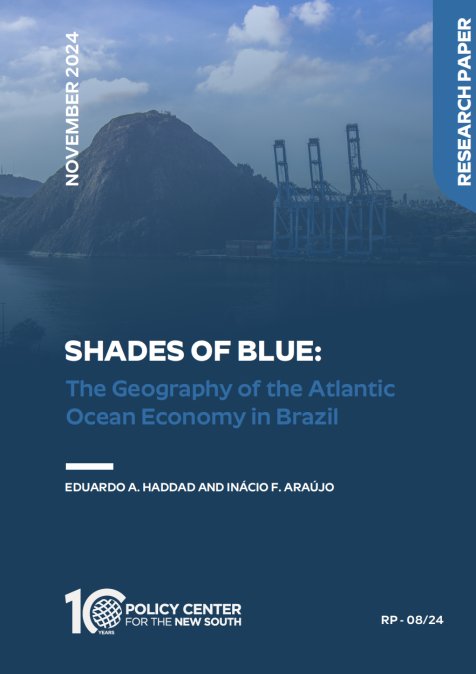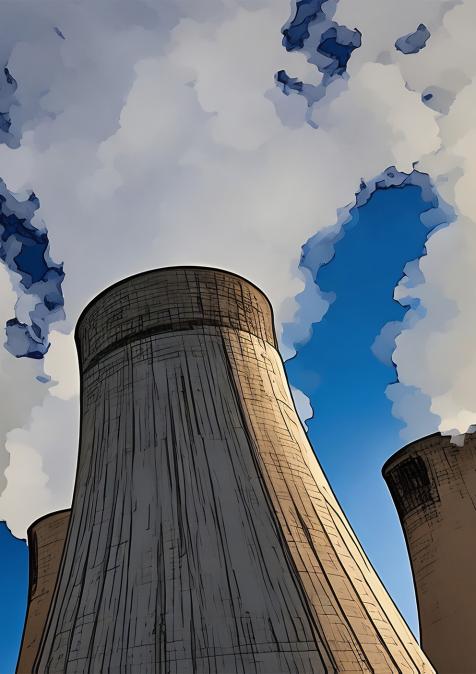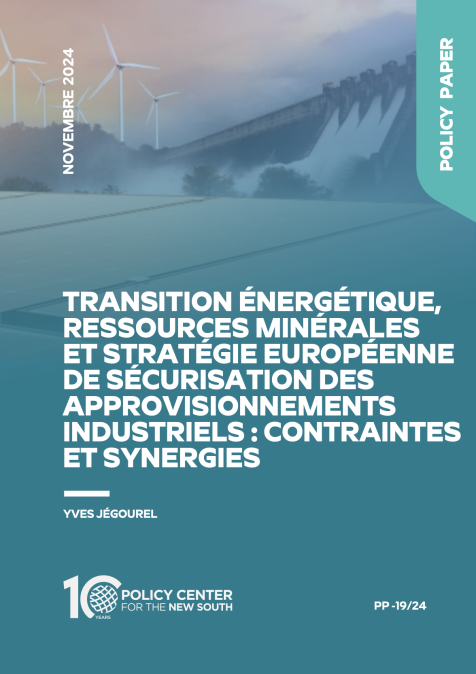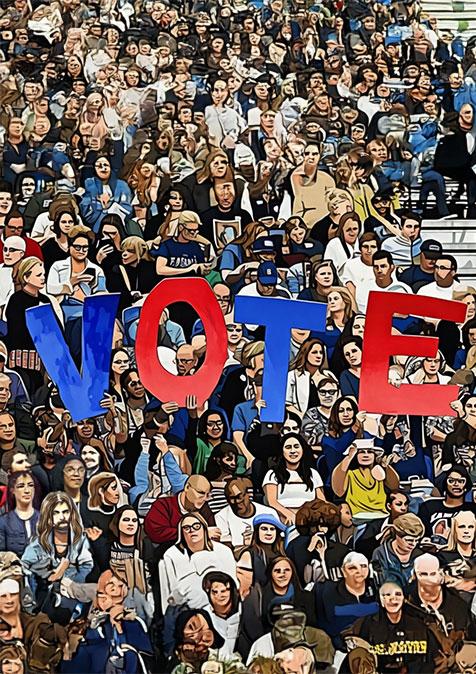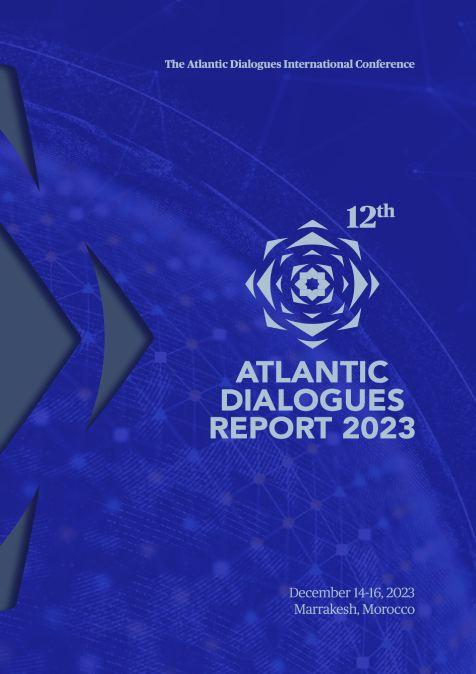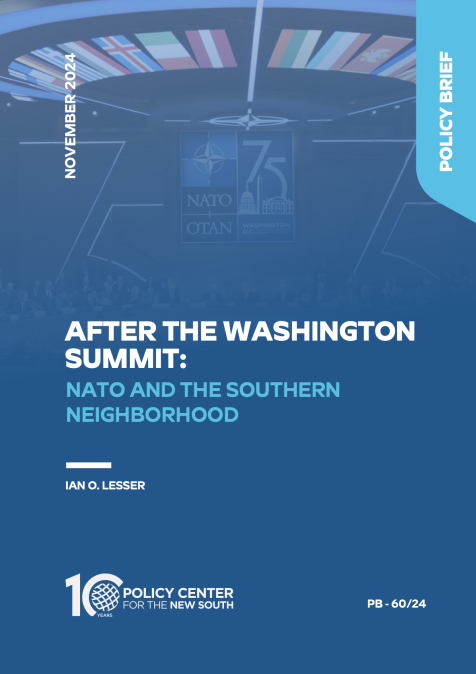Publications /
Opinion
"We have concluded a really tremendously successful G7"
It was a war of words. Written words first, which darkened the spirit of history, questioned treaties, laws, economic stability, diplomacy and the wisdom and limit of politics. In other words, the political system, democracy itself was suddenly questioned, as well as prosperity. Predictability started to unravel because the unperturbed President of the United States believes in chaos and in the arrogance of power. Philosophical, political reflections are reduced to sound bites. Would the economies of the world now be threatened, drawn into turmoil?
A social media war
It was a battle, which began on Twitter…where else? Debates in national parliaments, diplomats working out compromises, searching for solutions? No. Only public grandstanding, and social media. Trump vs Macron. Trudeau vs Trump. The disputed leader of the free world insulting allies, praising the sanity of dictators. The world upside down. No Twitter by Mrs. Merkel, who does not maintain an account.
She declared on public TV that she was “disillusioned”, and that the decision taken by Trump was “somehow depressing” and “sobering”. He informed his allies by Twitter that he was withdrawing his signature from the final communiqué of the so called “G7” summit, which had gathered heads of state and Prime Ministers of the most advanced economic nations (except China and Russia) on the Canadian golf resort La Malbaie (Quebec).
Suddenly the possibility of a devastating war of trade and tariffs was turning into a reality, and the world order itself, established over decades, seems threatened. The trust in treaties, the mechanism of economics in international institutions like the World Trade Organization, are indeed questioned as never before.
America First
“The U.S. President, believes Oscar Fischer, a former German Foreign minister, is deliberately destroying the American world order. The transatlantic relationship can no longer be taken for granted. But it would be foolish of us to give it up of our own accord”.
Trump has threatened to impose high import tariffs on cars, of which annually more than 500,000 are exported from Germany to the U.S. Angela Merkel announced publicly that her government would fight “illegal” impositions by Washington. But “what can you do,” asked Oscar Fisher, “given the current balance of power, sometimes all you can do is gnash your teeth”.
The truth is that Washington is acting more like an enemy than an ally, since Trump has given up conducting policies on established principles and signed treaties. Since the U.S. President is driven by his gut feelings and instinct, trying to use chaos as a tool of politics, European leaders now fear that Trump may develop into a greater and immediate threat to the alliance than even authoritarian power rivals as Russia or China.
The unpredictable President has created, with no doubt, the highest level of tensions between the U.S. and its allies in recent memory. The speed under which the U.S. has been turning its back on the world order (it has shaped since the end of World War II) has been breathtaking. Trump’s battle cry “America first,” predicted an American magazine, may turn into a different reality: America alone, Trump against the rest of the world. As the “Sueddeutsche Zeitung” in Munich commented: “The U.S. wants isolation, they are conducting isolation, and they will get isolation”.
Even some Republicans like senator John McCain (who is battling a deadly brain cancer) are trying to reassure America’s desperate friends that all is not lost: “to our allies, bipartisan majorities of Americans remain pro-free trade, pro-globalization and supportive of alliances based on 70 years of shared values. Americans stand with you, even if our president doesn’t”.
Will a G6 be the solution?
Donald Trump had been hesitating to travel to Canada and meet his European and Canadian “colleagues”, since he was aware that he would participate in a contentious and possibly most consequential summit. His allies, upset about his decision to impose high tariffs on steel (25 percent) and aluminum (10 percent) on them, and ignoring the mechanisms of the WTO, which could have proposed a compromise on the issue.
Emmanuel Macron, who tried to establish a privileged relationship with Trump, had declared, weeks prior to the summit: “we will talk about anything in principle with a country that respects WTO rules. We will not talk about anything when it is with a gun to our head”. The gun was drawn, and the U.S. partners had to talk.
The mood at the summit, predicted CNN, “will be unpleasant”. The participants, Trump in front, were preparing their position by phone or Twitter. Macron, for example, had a tense phone talk with Trump, telling him that his tariffs on steel and aluminum were “illegal” and a “mistake”. When asked about details of the angry discussion, the French President borrowed a famous quote from the 19th century Prussian statesman Otto von Bismarck: “if we explained to people how sausages were made, it is unlikely they would keep eating them”. In other words, the conversation was unpleasant and indigestible.
Prior to arriving in Quebec, Macron tweeted (on June 7th): “the American President may not mind being isolated, but neither do we mind signing a six-country agreement if need be. Because these six countries represent values, they represent an economic market which has the weight of history behind it and which is now a true international force”. No kind word for dear Donald, old buddy, no schmaltz or sugar coating, which the narcissistic Trump enjoys. This was Realpolitik and the gloves came off.
Agricultural Turmoil
One week before the summit, Trump accused the neighbors in the north to have been treating “our agricultural business and farmers very poorly for a long period of time. Highly restrictive on trade”. In a testy phone call Trump accused Justin Trudeau, his host, that Canada was not the trusted friend it tried to project, reminding him that already during the war of 1812, Canadians burned down the White House—alas, the looters were British. When the U.S. President insisted that the tariffs on aluminum and steel were imposed for national security reasons, Trudeau replied: “it is kind of insulting” to Canadian veterans, who had stood by their U.S. allies in conflicts dating back to the First World War. Here he comes again, Mr. Trump, via Twitter: “Prime Minister Trudeau is being so indignant, bringing up the relationship that the U.S. and Canada had over many years, but he does not bring up the fact that they charge us up to 300 percent on dairy, hurting our farmers, killing our agriculture”.
Since debates among politicians should be heard by the public, particularly five months before congressional elections, Trump reaffirmed by Twitter his favorite means for pushing his agenda. For instance, on June 4th, he wrote: “farmers have not been doing well for 15 years. Mexico, Canada, China and others have treated them unfairly. By the time I finish trade talks, that will change, big trade barriers against farmers, and other businesses, will finally be broken. Massive trade deficits no longer!”
One day prior to the opening of the summit prepared to establish unity, at least mutual respect, Trump tweeted: “why isn’t the European Union and Canada informing the public that for years they have used massive trade tariffs and non-monetary trade barriers against the US. Totally unfair to our farmers, workers & companies. Take down your tariffs and barriers or we will more than match you”.
The same day, another reminder that a trade war was in the air: “please tell Prime Minister Trudeau and President Macron that they are charging the U.S. massive tariffs and create non-monetary barriers. The E.U. trade surplus with the U.S. is 151 billion, and Canada keeps our farmers and others out. Look forward to seeing them tomorrow”.
Trump sent out another Twitter message, 3.25 in the morning: “looking forward to straightening out unfair trade deals with the G7 countries. If it does not happen, we come out even better”. He arrived late, kept his allies waiting for 17 minutes at one working breakfast, and announced that he would part early, because Kim Jong Un was waiting for their historic meeting in Singapore, which, supposedly, will forever glamourize Trump in future history books.
The Death of the Euro-American alliance?
Even before the leaders were uniting for the traditional summit group photo, Trump’s top economic adviser, Larry Kudlow, described the hostile arguments as being nothing more than a “family quarrel”.
The debates seem to prove that right in a remote part of Canada, Trump was trying to destroy trust and predictability needed for a constructive dialogue between nations, and impose his own awkward way of dealing with sensitive, fragile trade mechanisms, which he declared obsolete, because that is his uneducated conviction, not questioned by his advisers.
The U.S. President, no surprise, chose to ignore the criticism of Jean Claude Juncker, the President of the European Commission, who had publicly declared what he would tell the U.S. President at the summit: “you don’t listen, and you think you can talk down to the Europeans and belittle them. That is not going to happen. That is not how you treat allies, and Europeans and Americans are allies”.
Trump apparently does not care about dated alliances, and his criticisms of NATO or the United Nations are repeated often. He withdrew from the Trans-Pacific Partnership, the trade agreement the U.S. negotiated to bolster its economic and strategic position in the Pacific, at the expense of China and Russia. He pulled out from the Paris Climate agreement, lauded Britain’s Brexit and started a trade war with the closest allies of the United States. In some ways the G7, even prior to its opening, had turned into a G7 minus one.
Is Trump supporting dictatorships?
Trump shocked his G7 partners by repeatedly pushing for Russia to be readmitted into the group, four years after Moscow was suspended for its covert military intervention in Eastern Ukraine and the annexation of Crimea, a proposal the partners rejected-no critical word about Russian meddling in the U.S. Presidential elections by Trump, no word about Moscow’s support for dictator Assad.
Prior to his departure, Trump answered a question about Crimea. Yes, Obama was the culpable who else, “he allowed Russia to take Crimea”. The Minority Senate leader Chuck Schumer tweeted: “are we executing Putin’s diplomatic and national security strategy, or American diplomatic and national strategy - after the last few days it is hard to tell”.
London’s Guardian commented that even for a presidency as capricious as Trump’s, his action marked a new blurring of lines between his personal feelings towards other leaders and U.S. government policy. “It was also the latest example of how Trump’s use of much harsher language towards fellow democratically elected leaders of allied countries than to strongmen leaders of enemy and adversary nations”. Thomas Wright, director of the Center on the U.S. and Europe at the Brookings Institute, confirmed: “he’d much prefer to be in Singapore than in Quebec. He has got more annoyed with allies than enemies and really does not get on with others at the G7.”
Despite the tensions, Trump agreed on a text that all leaders would be willing to accept in the final communiqué, as the “need for free, fair and mutually beneficial trade and the importance of fighting protectionism. We commit to modernize the WTO to make it more fair as soon as possible. We strive to reduce tariff barriers, non-tariff barriers and subsidies”.
Emmanuel Macron was convinced and documented, again on Twitter: “Ce G7 a permis d’illustrer l’efficacité d’un front commun européen, de lever des malentendus sur le commerce et d’amorcer un apaisement ». How wrong he was -no calming of Trump’s belligerent spirit or a better understanding on European trade. Macron reminded the U.S. President on Twitter : “au G7 Charlevoix, le Président Trump a vu qu’il avait face à lui un front uni. Se retrouver isolé dans un concert des nations et contraire à l’histoire américaine ».
Again, Macron underestimated the ego of Trump. The President could care less about those partners, who really have no means to resist U.S. global and economic power. He could care less about American history. Donald Trump is writing is own history. The recovery of the fading United States towards greatness.
America, or everyone’s bank?
The U.S. President would skip the session on climate change and the environment, a subject not really close to his heart, and would depart towards his historic meeting in Singapore. He would just answer a few questions at the “Fairmont Le Manoir Richelieu” in Charlevoix to the press, a group he usually avoids. How would he deal with retaliation of other nations effected by his tariffs? “They are making a mistake.”
Trump would even be willing to stop trading with nations that put unfair tariffs on US goods. “The U.S. has been taken advantage of for decades and decades and we can’t do that anymore. America has been treated very, very unfairly. We are like the piggy bank that everybody is robbing and that ends. The European Union is brutal to the U.S. They know it when I am telling them, because they are smiling at me. You know, it is like the gig is up. There is nothing they can say. They can’t believe they got away with it”.
Trump felt like congratulating “the leaders of other countries for so crazily being able to make these trade deals that were so good for their countries and so bad for the United States”. Nevertheless, despite insults and exaggerations, Trump wanted to depart, leaving behind a positive spirit, even if he was alone in his positivism: “we’ve concluded a really tremendously successful G7”. Justin (Trudeau) “did a really outstanding job”, and on a scale from 1 to 10 Trump gave him, as to “Angela and Emmanuel”, a 10, the top note.
Once his Air Force One had taken off, he praised on Twitter: the “great meetings and relationships with the six country leaders, especially since they know I cannot allow them to apply large tariffs and strong barriers to U.S. trade. They fully understand where I am coming from. After many decades fair and reciprocal trade will happen”.
But after a few hours into the flight of Air Force One, some time prior to a refueling stop on Crete, reality caught up with the delusional President. Trudeau had announced in a Press conference that by July 1st, Canada would retaliate for the U.S. steel and aluminum tariffs, exactly with the same sum calculated, 12.8 billion U.S. dollars. As Canadians, Trudeau declared, “(…) we are polite, we are reasonable, but also we do not like to be pushed around. I have made it very clear to the President that it is not something we relish doing, but it is something that we will absolutely do”.
Trump apparently was exasperated that his trip towards greatness and history was disturbed—he downgraded his top note on Trudeau to subzero and informed the world via Twitter: “PM Justin Trudeau of Canada acted so meek and mild during our G7 meetings only to give a press conference after I left saying that ‘U.S. tariffs were kind of insulting’ and he will ‘not be pushed around”. Very dishonest and weak. Our tariffs are in response to his 270 % on dairy.”
It was not the end. Another inflammatory tweet followed, one with unpredictable consequences: “based on Justin’s false statements at his news conference, and the fact that Canada is charging massive tariffs to our U.S. farmers, workers and companies, I have instructed our U.S. Reps not to endorse the communiqué, as we look at tariffs on automobiles flooding the U.S. market”.
Just before Trump expedited his message of rupture, his hawkish national security adviser John Bolton, sent a tweet of his own: “just another G7 where other countries expect America will always be their bank. The President made it clear today. No more”.
The American revenge on trade
The French President, publicly humiliated by his friend in the White House, on Sunday had an anonymous “official” reaction to the news of Trump’s decision to ignore his partners and their views of future strategies, by stating: “international cooperation cannot depend on being angry and on sound bites. Let’s be serious”. Anyone who fails to honor the commitment made at the summit would be showing their “incoherence” and “inconsistency”. Not a surprise, the leader of America is as he is, supported these days by 44 percent of the electoral, turning into a cult figure for Republicans, of whom 87 percent approve of the politics of Donald Trump.
Even while preparing his rendezvous with Mr. Kim, Trump continued his relentless Twitter pressure on his allies, opening yet another front: he tweeted on June 10th: “800 billion trade deficit, and add to that the fact that the U.S. pays close to the entire cost of NATO—protecting many of these same countries that rip us off on trade (they pay only a fraction of the cost and laugh). The European Union who had a 151 billion surplus should pay much more for military.”

